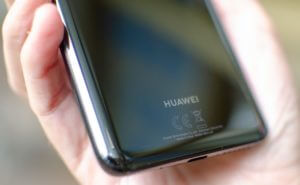The Chinese telecommunications giant, Huawei, has been under scrutiny in the past few months. The company has been forced to assuage political fears that they’re using their networking and telephone products to interfere in national security concerns in Australia and even the USA.

It was revealed early this month that Facebook had entered into data access agreements with Huawei and other Chinese technology companies. Facebook has since assured the American congress that the data access was minimal and that it was not being transferred or stored on any servers, Chinese or otherwise.
Nevertheless, the company’s supposed ties to the Chinese government continue to fuel the Australian government’s suspicion. It is felt that allowing Huawei access to so much of our telecommunications network may lead to a serious breach in national security.
As a result, the Australian government is considering banning Huawei from participating in the country’s 5G network rollouts. Huawei has objected to this ban, arguing that without their contribution to the 5G rollouts, Australia might fall behind in its networking capabilities. Likewise, Huawei’s Australian Chair, John Lord, argued that Huawei and other Chinese companies have been contributing a substantial amount of technology to Australia’s networking system for over 15 years. Introducing a ban fuelled by political fears ignores the fact that Huawei has been complying with Australian business and National Security interests for a long time.
In fact, Huawei has recently offered to establish a testing centre. The centre would be overseen by Australia’s intelligence apparatus, where they can oversee and review Huawei’s hardware and source code development.
Despite these attempts at transparency, the Australian government remains sceptical of Huawei’s intentions and will enforce its exclusion of Huawei in the build-out of Australia’s 5G network.
In a political climate where so much has been made of foreign interference, the Huawei ban showcases how even the most benign business deal can easily become political.
Much has been made of Huawei’s founder Ren Zhengfei, who is a former Chinese military officer. His former profession in the PLA only fuels the suspicion that his company is tied to Chinese national interests. On the other hand, Huawei’s Australian Chair, John Lord, was a former Rear-Admiral of the Australian Navy. Lord’s vehement defence of Huawei’s commercial activities in Australia could have assuaged government fears of Chinese interference in Australian political and commercial affairs.
With Australian-Sino relationships at such a low point, it is difficult to discern where to draw the line between concerns for national security and international trade. Huawei is not the only Chinese company involved in Australian (and other foreign countries’) technological infrastructure. If we are to suspect that any Chinese company may be acting as an agent of the Chinese government, then we must also throw suspicion on Optus or Vodafone as well, as they also utilise Chinese-contracted hardware.
While the current political climate remains, some Western governments such as Australia or the USA will remain suspicious of Chinese commercial activity on a large scale. It is hoped and assumed that Huawei, or any other foreign corporation, is willing to comply with Australia’s laws and act independently of whatever country they originate from. International trade thrives on the ability to exchange services and goods across borders, without favouring the political interests of one’s home country. For now, Australia should apply sensibility and caution in equal measures to ensure that Australia’s security advance hand in hand with our technological progress.
